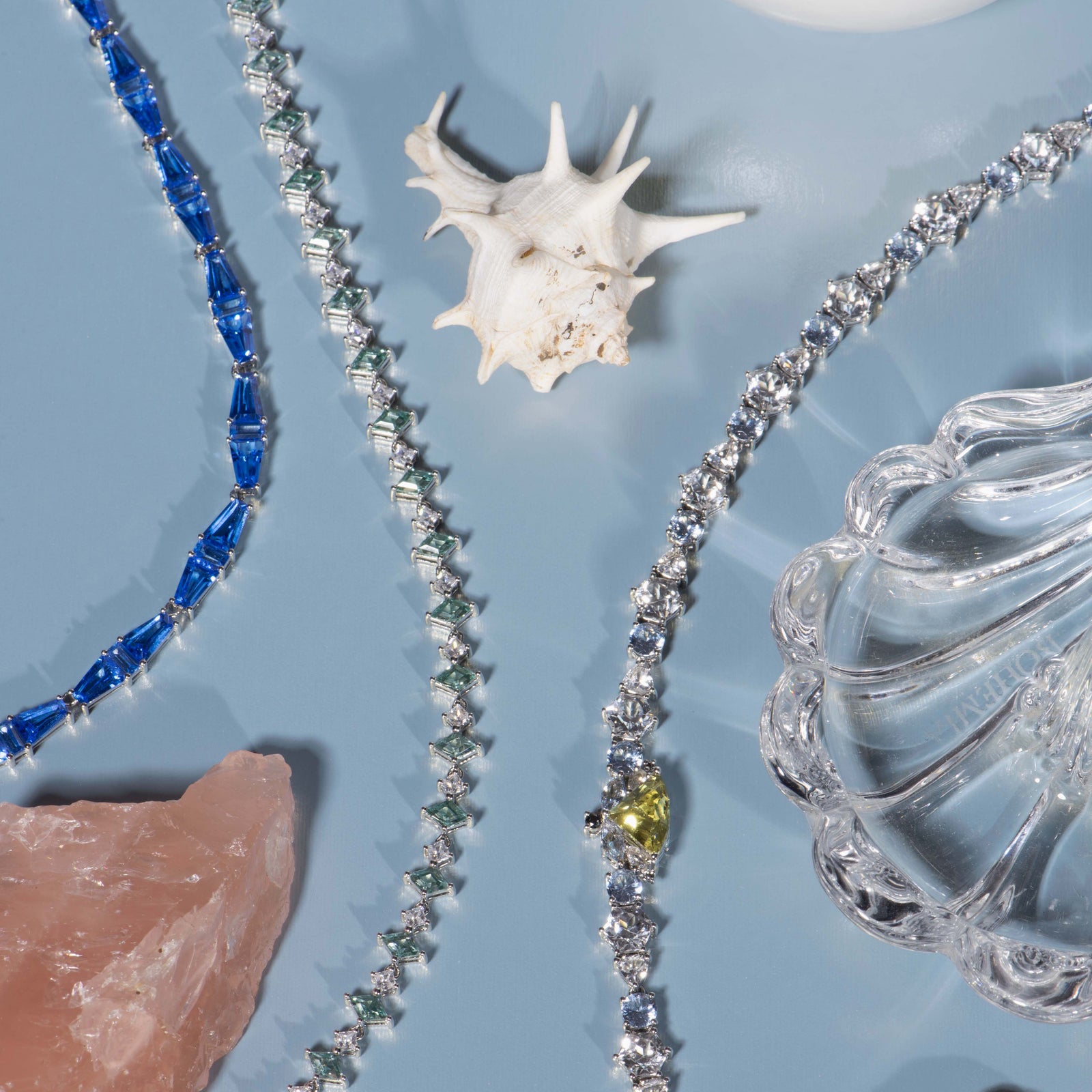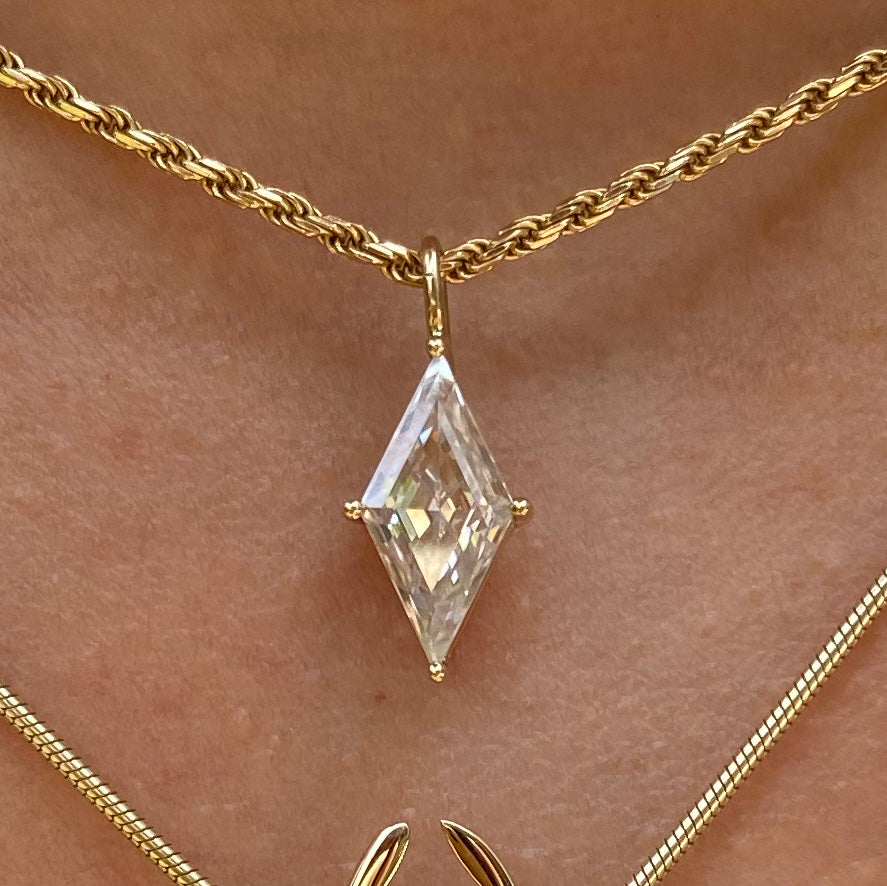Using 93% less carbon footprint, our gemstones and diamonds are physically, chemically and optically identical to precious gemstones and diamonds. Lab grown diamonds & gemstones are a sustainable and ethical alternative to mined gemstones.
Lab grown gemstones & diamonds are an incredible invention, as well as being sustainable they allow a plethora of choice in terms of size, clarity and colour. As designers, this gives us more freedom to be experimental with our creations. Lab-grown gemstones offer the opportunity to turn the unimaginable into reality, allowing us to fulfill our wildest jewelry dreams.
We source our lab created sapphires & spinels from a factory in Switzerland. The factory is powered by green hydrogen, which means our gemstones have an extremely low carbon footprint.
The sapphires and spinels are created by a method called the Verneuil process, which involves fusing alumina with metallic oxides, at a temperature of around 2000 degrees celsius. Originally developed by the french chemist Auguste Verneuil in 1902, the process can be used to create sapphires, rubies and spinels.
Our lab grown emeralds are produced hydrothermally, which uses high temperatures to grow upon a colourless piece of beryl. Lab grown emeralds grown hydrothermally form a distinct chevron facet structure, which gives the gemstone a remarkable natural texture. Lab grown emeralds are of a higher quality than most mined emeralds, as they don’t have any cracks or inclusions.
Lab grown diamonds physically and optically exactly the same as mined diamonds, only produced sustainably. The first lab grown diamond was formed in the 1950s, mainly used for industrial applications. Modern lab grown diamonds are created in plasma reactors as hot as the outside layer of the sun, that replicate the natural diamond growing process. The reactors produce high quality diamonds that are perfectly brilliant.
Although the production of lab grown diamonds can consume a significant amount of energy, it still does not equate to the total amount of energy used when mining diamonds. Mined diamonds disturb the environment, are very water intensive and mining companies do not always follow the best ethical practices.
We partner with exceptional manufacturers that commit to ethical practices. We work with a select few small businesses around the world to produce our jewellery. We believe in exceptional craftsmanship, and only partner with jewellers who can produce in small quantities in order to create less waste.
We work with one small company in Asia known for its ancient history from 2000 years ago, to cut and polish our gemstones and manufacture our jewellery, known globally for being a hub of the lab grown gemstone trade, particularly lab grown sapphires and spinels.
The workshop operates with ethical practices and is verified by the SGS, a globally leading inspection and certification company, which maintains ethical and sustainability standards. SGS are sustainability leaders, and ensure businesses deliver with integrity, trust and transparency by offering services like site operation, management ,green process design, environmental assessment of suppliers and assess risk within supply chains. The workshop in also donates 3% of their net profits to education development funds in underprivileged areas in Asia.
In the UK, we partner with workshops in the renown jewellery district, Hatton Garden. A street full of small family business manufacturers, suppliers and jewellers. Hatton Garden has an incredible amount of character and energy, it is a small community that feels very close to us.
Coral vita works to preserve the reefs we love. Based on Grand Bahama island, where the LeBlanc sisters are from, we contribute part of our profits towards buying corals to restore reefs that are affected by climate change. The coral grows 50x faster than natural coral and are more resilient towards warming, acidifying oceans that threaten their survival.
This is personal to us, as growing up in the Bahamas and seeing coral dying over time, we want to be part of the vision to produce billions of coral to maintain these ecosystems. This also benefits Grand Bahama islands future, as an island that relies on tourism, having an abundance of coral reefs are important to sustain this economy.
Sign up to our newsletter for 10% off your first order, receive early access on new arrivals & discounts. ✨

